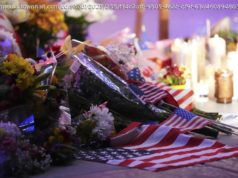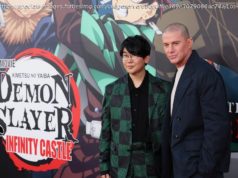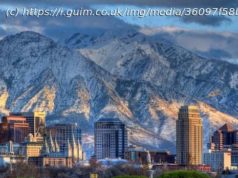Butina even asked Trump a question at an event in 2015.
Just hours after President Trump’s press conference with Vladimir Putin, the Justice Department announced the arrest of a Russian national — Maria Butina — for secretly trying to influence US politics at Russia’s behest.
An affidavit filed by an FBI agent asserts that Butina tried to cozy up to a gun rights organization so she could influence a major political party, all the while working for a top Russian central bank official and trying to advance the interests of the Russian state — and not registering as a foreign agent.
Though the affidavit does not name many of the people and groups involved, previous reporting and context clues make it clear that the gun rights group is the National Rifle Organization, the party is the Republican Party, and the Russian official is Alexander Torshin.
The Butina case is not part of special counsel Robert Mueller’s probe — she was investigated by the FBI’s Washington field office and will be prosecuted by the US Attorney’s Office for the District of Columbia. Butina was arrested on Sunday (before Trump and Putin met).
The connections between Butina and the NRA are no secret — indeed, she’s been known and lauded in conservative activist circles for years. Back in 2014, TownHall’s Katie Pavlich profiled her as “the woman working with the NRA and fighting for gun rights in Russia.”
And Butina and Torshin have long been figures of intrigue in reports on Russia and the 2016 campaign. For instance, Butina showed up at a July 2015 event in Las Vegas and asked Trump what his policy toward Russia sanctions would be, if elected. Torshin, meanwhile, met Donald Trump Jr. at an NRA event in May 2016. Butina even hosted a costume party for her birthday four days after Trump won — according to the Daily Beast, some Trump campaign aides attended and Butina openly bragged that she helped Trump’s campaign communicate with Russia.
Those events aren’t mentioned in the charging documents. What the affidavit does reveal, though, are private communications in which Butina makes clear she’s cozying up to the NRA and the GOP as part of a deliberate strategy to advance Russia’s interests.
The affidavit claims that on or around March 24,2015, Butina emailed a proposal for a project called “Diplomacy.” In it, she stated that a major US political party (clearly the Republicans) would likely win the 2016 election. The problem, she wrote, was that the GOP is “traditionally associated with negative and aggressive foreign policy, particularly with regards to Russia.”
Butina wanted to change that, and had an idea for doing so. She wrote that within the GOP, a gun rights organization (obviously the NRA) has a “central place and influence,” saying it funds campaigns and sponsors major conferences like the Conservative Political Action Conference. Butina wrote that she and Torshin had already been building ties to the NRA, and proposed that she wanted to go to “all upcoming major conferences” related to the Republican Party before the 2016 elections.
She went on to arrange a series of “friendship and dialogue dinners,” frequently reporting back to Torshin. She got tickets for two National Prayer Breakfasts. She worked with two unnamed US people on the effort, one of whom emailed an acquaintance saying he’d secured “a VERY private line of communication between the Kremlin” and key Republican leaders, through the NRA. And she moved to the US in August 2016, on a student visa.
By October 5,2016 — a point when Trump was believed to be very likely to lose the election — Butina exchanged a series of intriguing direct messages with Torshin. “Time will tell. We made our bet. I am following our game,” she wrote. After she expressed some uncertainty, he answered, “Patience and cold blood + faith in yourself. And everything will definitely turn out.”
Butina elaborates in another message that same day that the “crucial” issue in the election race was that Republicans were “for us” and Democrats “against,” so “our move here is very important.”
After Trump won, Butina and Torshin exchanged messages again, in which she wrote: “I am ready for further orders.” A few days later, she messaged him about someone who might be named secretary of state, and asked how “our people” felt about that person.
The affidavit ends by describing how Butina and Torshin attended the National Prayer Breakfast in February 2017, shortly after Trump’s inauguration, and by quoting from some communications in which Butina suggested she was acting on Russia’s behalf (“My dearest president received ‘the message’”). The affidavit also says that she never notified the attorney general that she was acting as a foreign government agent, as required by law.
It is not yet known if the investigation of Butina will lead to any other charges.






